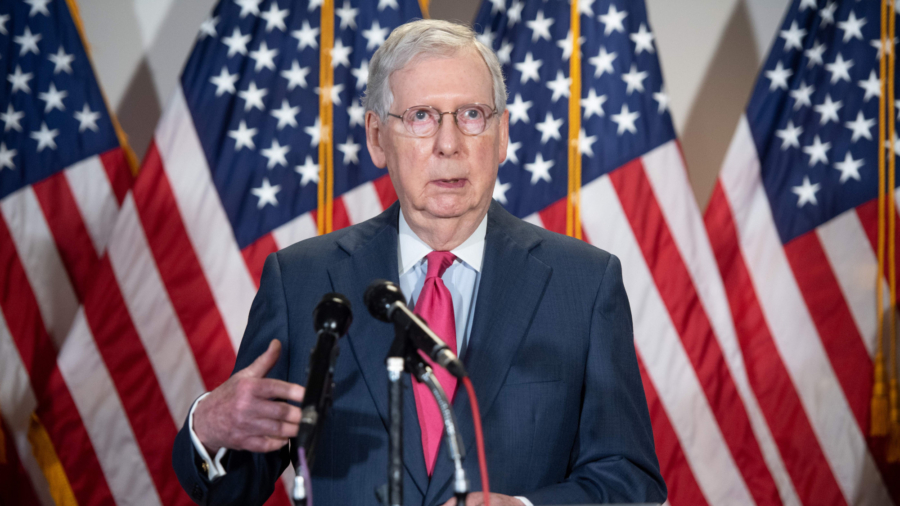Senate Majority Leader Mitch McConnell (R-Ky.) signaled that the $600 per week unemployment insurance bonus won’t last, adding that it has created a U.S.-wide problem of people not wanting to head back to work.
“It has made it harder for us to get people back to work, we’ve actually made it more challenging to get people back to work,” McConnell told reporters on Friday afternoon about the bonus.
The unemployment bonus was created as a provision under the CARES Act, which was passed in March, as an attempt to offset job losses incurred by stay-at-home orders across the United States to curb the spread of the CCP (Chinese Communist Party) virus, a type of novel coronavirus.
But McConnell and other GOP officials, including White House adviser Larry Kudlow, have stressed that the extra $600 per week has created an incentive for people not to return back to work.
“That will expire in July. That will not be continued,” the Senate majority leader added on Friday. The extra $600 per week will end after July 31.
Kudlow and other officials have suggested that the additional checks are no longer necessary as businesses start to reopen and unemployment rates fall.
“The $600 plus-up that’s above the state unemployment benefits they will continue to receive is in effect a disincentive. I mean, we’re paying people not to work. It’s better than their salaries would get,” Kudlow told CNN on Sunday.

The $2.2 trillion CARES Act also distributed $1,200 checks, deposits, and bank cards to tens of millions of Americans. The package also included an expansion in unemployment payments, loans to small businesses, assistance toward local and state governments, and more.
Democrats in recent weeks passed the HEROES Act, which would provide $1,200 to most who are eligible but also would give the same amount to children. The CARES Act provided $500 to children under the age of 17. However, Republicans have said the bill contains too many unnecessary measures and noted it is essentially dead-on-arrival if it ever reaches the Senate.
The HEROES Act would also continue the extra $600 per week until 2021.
In early May, a group of Democratic legislators proposed extending the $600-per-week unemployment benefits before phasing it out when the economy returns to pre-pandemic levels.
The Worker Relief and Security Act was introduced by Rep. Don Beyer (D-Va.) and Sens. Jack Reed (D-R.I.) and Michael Bennet (D-Colo.), and it would extend the benefit for 30 days past the president’s emergency declaration.
Ending the extra unemployment benefits at the end of next month would be “a human and economic catastrophe,” Beyer said in a statement (pdf). “The effects of this sudden disappearance of income and spending could have grave consequences and even turn our pandemic-turned-recession into a full-blown financial crisis by causing a wave of defaults and foreclosures,” he wrote.
But Treasury Secretary Steven Mnuchin last week said that while the White House is open to another round of direct payments to Americans, the current unemployment system is broken.
“We’re going to need to fix unemployment,” he told a congressional hearing.
During the past three months, more than 40 million Americans have filed for unemployment, according to statistics from the Labor Department.
From The Epoch Times

